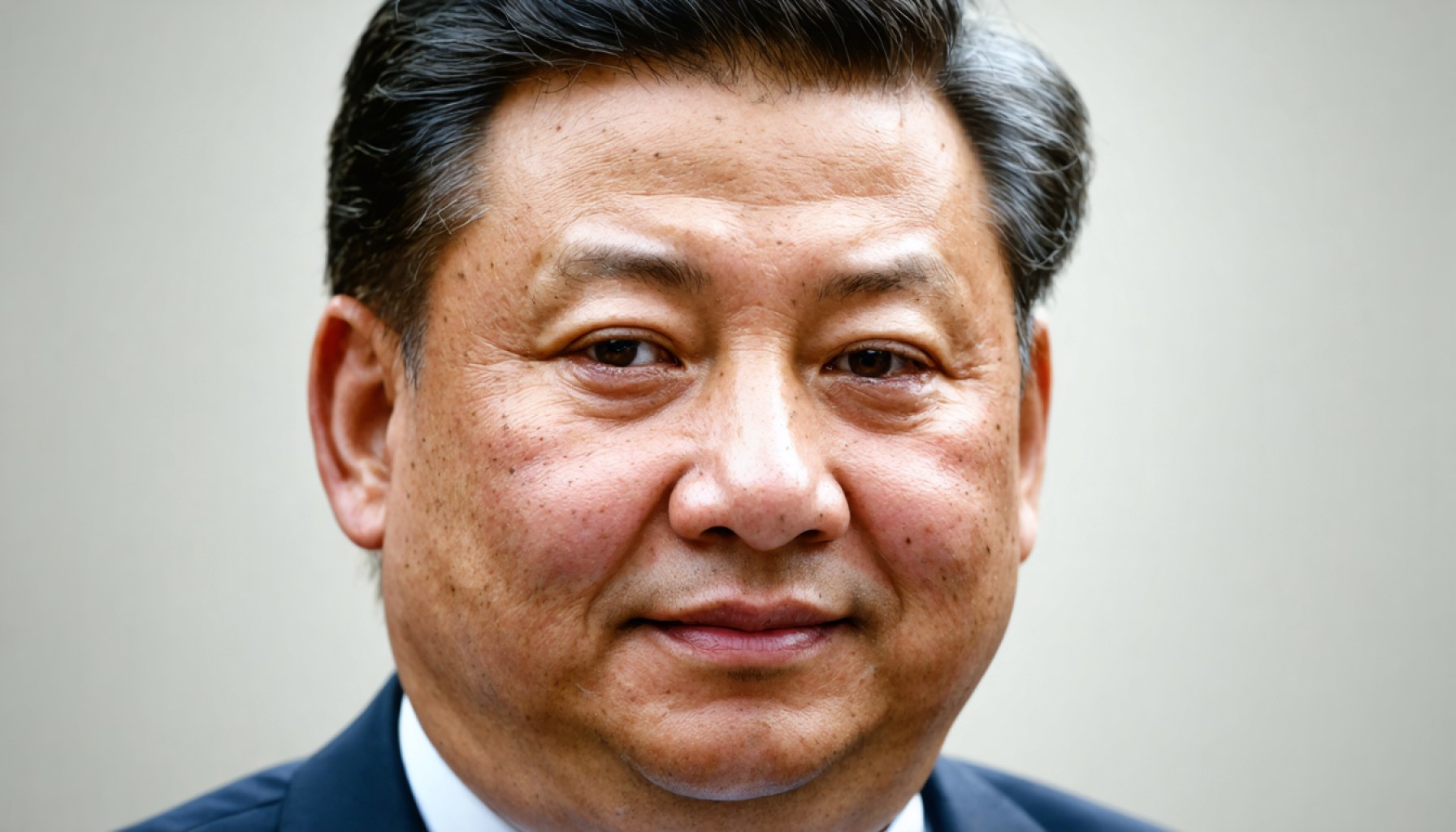- China’s Central Commission for Discipline Inspection investigates Jiang Chaoliang, a senior official, highlighting anti-corruption efforts.
- Jiang, a former governor and party chief, faces serious accusations despite a distinguished career.
- The investigation underscores China’s commitment to eradicating corruption at all levels of government.
- Observers note the potential for significant political implications and policy shifts as a result of the inquiry.
- This case emphasizes that no official is beyond scrutiny, reinforcing expectations of integrity in public service.
A seismic shift ripples through China’s political landscape as the formidable Central Commission for Discipline Inspection launches a rigorous investigation into a senior official. Jiang Chaoliang, a vice-chairman of the Agriculture and Rural Affairs Committee, is now under the unforgiving scrutiny of the nation’s top anti-corruption body.
Born in the summer of 1957, Jiang carved an illustrious path through the corridors of power. With strategic acumen, he helmed vital roles including the governor of Jilin province and the illustrious position of party chief in Hubei. Now, accusations of severe violations loom ominously over his once-unblemished record.
The investigation sends an unequivocal message reverberating across the political spectrum. As clouds gather over Jiang’s storied career, the proceedings underscore China’s relentless commitment to rooting out corruption, regardless of rank or stature. The anti-graft campaign, with an iron fist, tightens its grip on those who err, reaffirming a zero-tolerance stance against ethical breaches.
In this evolving drama, the political stakes rise sharply. Observers watch intently, aware that the outcome reaches far beyond Jiang himself, potentially impacting policies and practices on a broader scale. This development suggests a sweeping wave of accountability that alerts all vested in public service.
This unfolding chapter in Chinese politics not only seeks to restore trust but also redefines the expectations from its stewards of power. As this story develops, it stands as a compelling reminder: No official, regardless of their past acclaim, stands beyond the vigilant gaze of discipline and integrity.
The Unyielding Pursuit of Integrity: China’s Anti-Corruption Drive Intensifies
How-To Steps & Life Hacks: Navigating China’s Anti-Corruption Landscape
1. Stay Informed: Regularly update your knowledge about China’s political and legal environment. Subscribing to reputable news sources will help you stay abreast of the latest developments in anti-corruption efforts.
2. Compliance Training: For businesses operating in China, engage in frequent compliance training sessions to ensure all employees are aware of ethical guidelines and legal requirements.
3. Ethical Culture: Foster a culture of transparency within your organization, encouraging whistleblowing and implementing robust internal audit systems to detect any irregularities early.
4. Risk Assessment: Conduct regular risk assessments to identify areas vulnerable to corruption and implement appropriate control measures.
Real-World Use Cases
– Policy Influence: The investigation into Jiang Chaoliang may result in stricter regulations within agricultural and rural affairs, impacting business practices in these sectors.
– Corporate Governance: Other sectors may witness heightened scrutiny, prompting corporations to strengthen their internal governance policies.
Market Forecasts & Industry Trends
– The ongoing anti-corruption campaign is expected to create a more equitable business environment, possibly attracting foreign investment due to increased transparency.
– According to analysts, this campaign can foster better alignment of governmental priorities with sustainable development goals by eliminating financial misconduct.
Pros & Cons Overview
Pros:
– Increased Trust: Stringent anti-corruption measures restore public and international trust in governmental operations.
– Level Playing Field: Eliminates unfair advantages obtained through corrupt practices.
Cons:
– Operational Disruptions: Investigations can cause temporary disruptions in government operations and affect associated businesses.
– Potential Overreach: Critics argue that anti-corruption efforts might be used politically to target opponents.
Reviews & Comparisons
China’s anti-corruption strategies are often compared to similar campaigns in global politics. Unlike many Western countries where transparency is bolstered through freedom of information, China’s approach is less about public documentation and more about top-down enforcement.
Controversies & Limitations
While the anti-corruption campaign boasts successes, it faces criticism for potential misuse in consolidating power and lacking transparency regarding investigation processes.
Features, Specs & Pricing
N/A (Political context; not applicable to typical features or pricing).
Security & Sustainability
The anti-corruption effort is closely linked with the national agenda for sustainable development. By curbing corruption, China aims to ensure that funds reach intended projects, particularly those promoting economic development and environmental sustainability.
Tutorials & Compatibility
For businesses affected by anti-corruption measures, it is crucial to adapt internal compliance and legal strategies. Tutorials on adapting business practices in compliance with corruption laws are available from legal consultancy firms.
Insights & Predictions
Experts predict a sustained rigor in China’s anti-corruption campaign, potentially ushering in new economic policies encouraging more foreign investments due to enhanced transparency.
Actionable Recommendations
– Develop a Compliance Checklist: Ensure every department adheres to anti-corruption laws through regular audits.
– Use Technology: Implement software that helps monitor financial transactions and detect discrepancies.
– Engage Legal Counsel: Regular consultations with legal experts to navigate and comply with local regulations are advised.
For more information on global anti-corruption efforts and insights, visit the [Transparency International](https://www.transparency.org) website.
